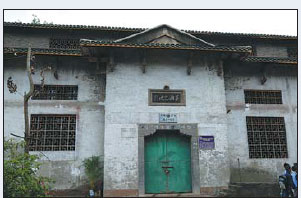A saga full of pride and national flavor
1951-1952
The Chinese government purchased Chengyi, the biggest local distillery, and merged it with another two distilleries, Ronghe and Hengxing, establishing the State-owned Moutai Distillery.
1952
Kweichow Moutai was rated as a nationally famous liquor, and top ranked among eight national liquors.
1957
China invested 1.3 million yuan ($197,511) in expanding liquor and yeast production, liquor storage, and laboratories. Moutai formalized 14 operating rules and procedures for producing Moutai, fully restoring traditional techniques.
1962
The Office of Light Industry of Guizhou province designated the annual output of Moutai as 500 metric tons, with 610 employees.
1972
During the National Workplanning Conference, Zhou Enlai instructed that in order to maintain water quality for Moutai production, no more mines or factories, especially chemical factories, should be built along the upper reaches of the Chishui River.
1979
Moutai won the National Liquor title for the third time and the National Golden Award for Quality for the first time.
1980
The packaging of Moutai liquor was transformed into a semi-mechanical, continuous production system, effectively improving its quality and increasing efficiency.
1983
The security committee of the Office of Light Industry proclaimed that the techniques of Moutai production had been officially listed in the first batch of confidential projects in light industrial science and technology. The production process was opened for visits but could not be photographed.
1989
Manual stomping to make distiller's yeast was fully restored. Moutai Distillery revised the national standard for first-class sauce aroma liquor distilleries. Kweichow Moutai won the Golden Award at the Fifth National Liquor Tasting Conference for the fifth consecutive time. Despite the overall decline of sales of white spirit in China, sales of Moutai surpassed the goal set by the nation and exceeded 100 million yuan ($15 million).
1991
The Kweichow Moutai brand from Guizhou gained top ranking in the first China Famous Trade Marks appraisal.
1996
Guizhou provincial government gave approval for Moutai Distillery to restructure into an exclusively State-owned enterprise, and to be renamed as China Kweichow Moutai Co Ltd. The series of 500 milliliter bottles of Kweichow Moutai (including Feitian and Wuxing) formally started to use customized caps provided by Italy's GOALA, with anti-counterfeiting marks, anti-refilling and safe-to-use functions.
2001
Kweichow Moutai launched Vintage Moutai, marking its production date at a conspicuous place next to the Moutai brand. Kweichow Moutai was successfully listed at the Shanghai Stock Exchange, raising 2 billion yuan.
2006
The Moutai liquor-making technique was selected on a list of the first batch of National Intangible Cultural Heritage.
2010
Annual sales revenue of Moutai Group exceeded 15 billion yuan. The company expanded its production capacity by more than 35 percent. The total market value of Kweichow Moutai Group Co Ltd reached 173.5 billion yuan, the highest of all listed white spirit companies.
2013
Heritage sites of the Moutai liquor-making industry were placed seventh on the list of key national-level cultural relics under protection. The Kweichow Moutai brand was valued at 82.4 billion yuan, topping the Chinese food and beverage industry list.
|
The old site of Chenyi distillery, which later became Kweichow Moutai, is now a national-level protected cultural relic in Maotaitown. Yang Jun / China Daily |















